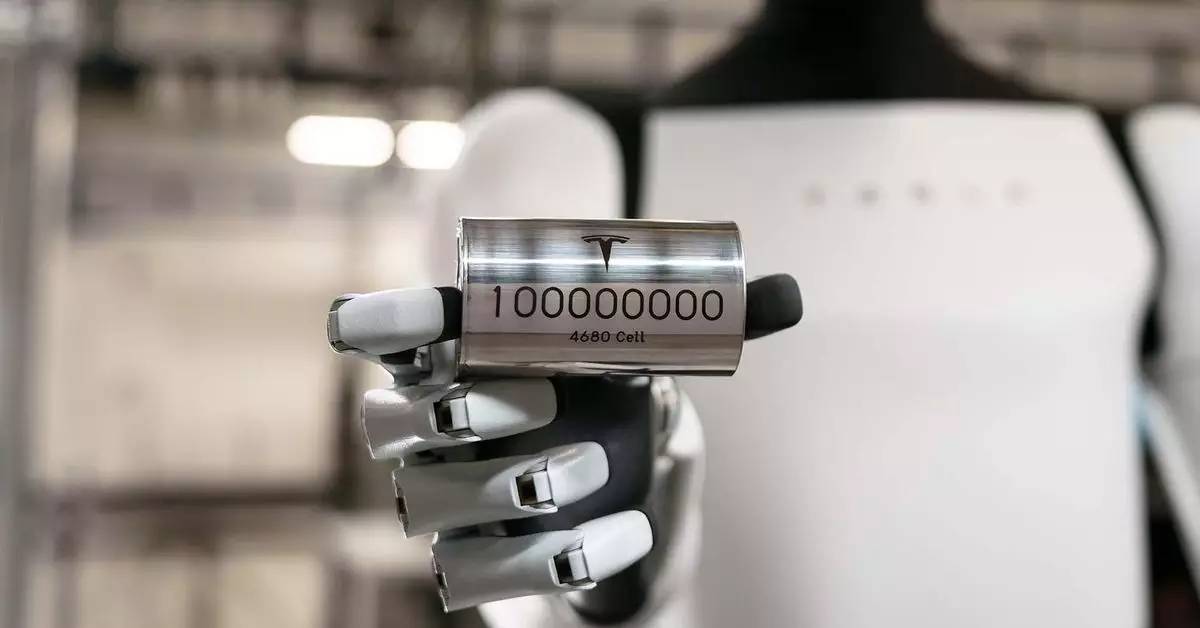In the rapidly evolving landscape of electric vehicles (EVs), competition among industry leaders has reached a fever pitch, with manufacturers vying for dominance through innovative battery technology. Notably, the ongoing feud between Robin Zeng, the founder of Contemporary Amperex Technology Co., Limited (CATL), and Tesla CEO Elon Musk underscores a critical juncture in the sector. As the largest battery manufacturer globally, Zeng’s insights cast a stark light on the ambitious strategies undertaken by Tesla concerning its 4680 battery cell technology.
During a visit to China in April, Musk encountered Zeng, leading to a “very big debate” regarding battery technology. Zeng boldly asserted that Tesla’s 4680 cylindrical cells are poised for failure, a statement that carries substantial weight given CATL’s significant market share and expertise in battery production. According to Zeng, Musk’s limited understanding of battery technology was evident during their discussion, ultimately leaving Musk “silent.” This moment ties into the broader implications regarding the direction Tesla is taking its battery development efforts.
Tesla claims that their 4680 batteries boast five times the energy capacity, facilitating improved performance for models such as the Cybertruck. Recently, the company celebrated producing 100 million of these batteries, but reports reveal ongoing production challenges and escalating costs. A sense of urgency permeates Tesla’s internal atmosphere as Musk has reportedly set end-of-year deadlines for addressing these issues, heightening the pressure on his engineers.
While Musk invests heavily in the development of 4680 cells, Zeng’s CATL is entrenched in the production of lithium iron phosphate (LFP) batteries, which, despite offering less range, are increasingly favored for their safety and cost-effectiveness. Notably, CATL’s batteries power a wide array of EVs, including Tesla models manufactured in China and American Ford vehicles like the Mustang Mach-E and F-150 Lightning. This reflects a crucial distinction in battery strategies between the two powerhouses; while Tesla pushes for increased energy density, CATL is leaning towards a pragmatic approach, prioritizing scalability and reliability.
Zeng’s criticisms extend beyond battery technology to Musk’s penchant for ambitious prognostications, particularly regarding Full Self-Driving technology. Zeng cautions that Musk’s timelines are often overly optimistic, suggesting that initiatives requiring five years of development are frequently projected as two-year projects. This pattern of overpromising raises questions about sustainability and long-term planning within Tesla’s operations, highlighting Zeng’s belief that the company may be setting itself up for disappointment.
The implications of this rivalry extend beyond heated exchanges; they speak to the future of EV technology. As consumer demand intensifies, the need for reliable, efficient, and cost-effective battery solutions becomes paramount. With Zeng’s insights and Musk’s aggressive strategies colliding, the outcome of this battery war could significantly shape the trajectory of the electric vehicle market, influencing everything from production methodologies to customer satisfaction. The clash of these titans invites observers to ponder what innovations may emerge as each attempts to establish technological supremacy in an industry desperate for growth and sustainability.


Leave a Reply